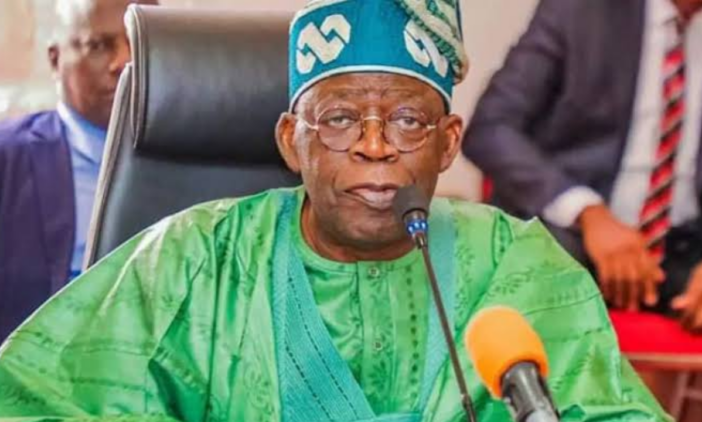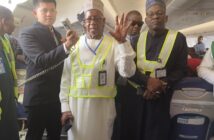The just-ended 78th session of the United Nations General Assembly was President Bola Tinubu’s first outing at that important gathering of global leaders and on that first appearance, he left behind a lasting impression.
Addressing the gathering around 8pm local time in New York which was 1am in Nigeria, on Tuesday September 19, President Tinubu was in an excellent form. Watching him as he delivered his speech in measured tones, you would be proud to be a Nigerian, nay African.
At that global stage, at the biggest congregation of Presidents and Heads of government from all over the world, President Tinubu did not only speak for Nigeria, he spoke for Africa. He delivered what many called an outstanding speech. His speech was a defining moment for Nigeria.
That speech dwelt on a number of important topics including the past failures of Nigeria and Africa, poverty in the continent, flooding and erosion, conflict and wars, extremism, climate change, military coups and the case of Niger Republic, as well as the unsavory roles played by the rich Western nations in some of these issues. The highlights of the speech are as follows: President Tinubu began by noting some of the failures of Africa to include bad governance, broken promises and weak economies, while also identifying unfair treatment and outright exploitation from abroad as contributory factors. Reminding his audience of this history, he said if the theme of that UNGA session- “Rebuilding Trust and Reigniting Global Security: Accelerating Action on the 2030 Agenda and its Sustainable Development Goals Towards Peace, Prosperity, Progress and the Sustainability for all” was to mean anything at all, “it must mean something special and particular to Africa.”
To address the identified problems of the African continent, he identified solutions, which he said African leaders must strive to fix. He stated categorically, however, that Africa would demand the same level of political commitment and devotion of resources that described the Marshall Plan, which emerged in the aftermath of the Second World War.
Realising that the underlying conditions and causes of the economic challenges facing today’s Africa are significantly different from those of post-war Europe, President Tinubu said Africa “is not asking for identical programs and actions. What we seek is an equally firm commitment to partnership. We seek enhanced international cooperation with African nations to achieve the 2030 agenda and Sustainable Development Goals.”
The President called on global institutions, other nations and their private sector actors to see African development as a priority, “not just for Africa but in their interests as well,” pointing out that due to both internal and external factors, Nigeria’s and Africa’s economic structures had been skewed.
Speaking specifically about Nigeria, the President noted that if Nigeria is to fulfill its duty to its people and the rest of Africa, the country must create jobs, create a better economy and a better future for her people and lead by example.
On the economic reforms he instituted in Nigeria, President Tinubu said he was mindful of the hardship that reform can cause, adding, however, that it is necessary for the country to go through this phase in order to establish a foundation for durable growth and investment to build the economy the people deserves.
While welcoming partnerships with those who do not mind seeing Nigeria and Africa assume larger roles in the global community, he said “the question is not whether Nigeria is open for business. The question is how much of the world is truly open to doing business with Nigeria and Africa in an equal, mutually beneficial manner.”
According to him, the critical aspects of the cooperation Nigeria and Africa would require are direct investment in critical industries, opening of ports in Europe and beyond to a wider range and larger quantity of African exports and meaningful debt relief.
Denouncing military coups, he warned that the wave of coups crossing parts of Africa does not demonstrate favour towards coups. “It is a demand for solutions to perennial problems.”
And speaking on the recent military coup in Niger, President Tinubu told the gathering that he was negotiating with the military leaders to help re-establish democratic governance “in a manner that addresses the political and economic challenges confronting that nation, including the violent extremists who seek to foment instability in the African region.”
On violent extremism, while stating that African nations would work to improve their economies to stem migration to other nations and also devote themselves to disbanding extremist groups on their turf, he urged the international community to strengthen its commitment to arrest the flow of arms and violent people into West Africa to fully combat the threat.
The President also sought global support and solidarity to secure the continent’s mineral rich areas from pilfering and conflict, while mentioning countries like The Democratic Republic of Congo, Sudan, Mali, Bukina Faso and Central African Republic, which have all become centres of misery and exploitation.
While noting that climate change severely impacts Nigeria and Africa, President Tinubu declared that African nations would fight climate change but would do so on their own terms. “To achieve the needed popular consensus, this campaign must accord with overall economic efforts. In Nigeria, we shall build political consensus by highlighting remedial actions, which also promote economic good,” adding, however, that continental efforts regarding climate change will register important victories if established economies were more forthcoming with public and private sector investments for Africa’s preferred initiatives.
Closing his speech, President Tinubu left these parting words from Africa to the rest of the world: “I say walk with us as true friends and partners. Africa is not a problem to be avoided nor is it to be pitied. Africa is nothing less than the key to the world’s future.”
That fine address is not the only significant aspect of Nigeria’s participation in this year’s UNGA. There were other interesting aspects, which are no less remarkable.
On the sidelines of the General Assembly, President Tinubu met with some other presidents, global leaders, top businessmen and investors. For instance, on Wednesday September 20, he met UN Secretary-General, Antonio Guterres, at his UN Headquarters office during which he called for international collaboration against illegal miners who pillage the resources of Africa and undermine African countries’ efforts to reform their economies.
–Rahman, former Editor of Thisday on Sunday Newspaper, is a Presidential aide.
8th UNGA: President Tinubu And His Defining Moment
Share.



